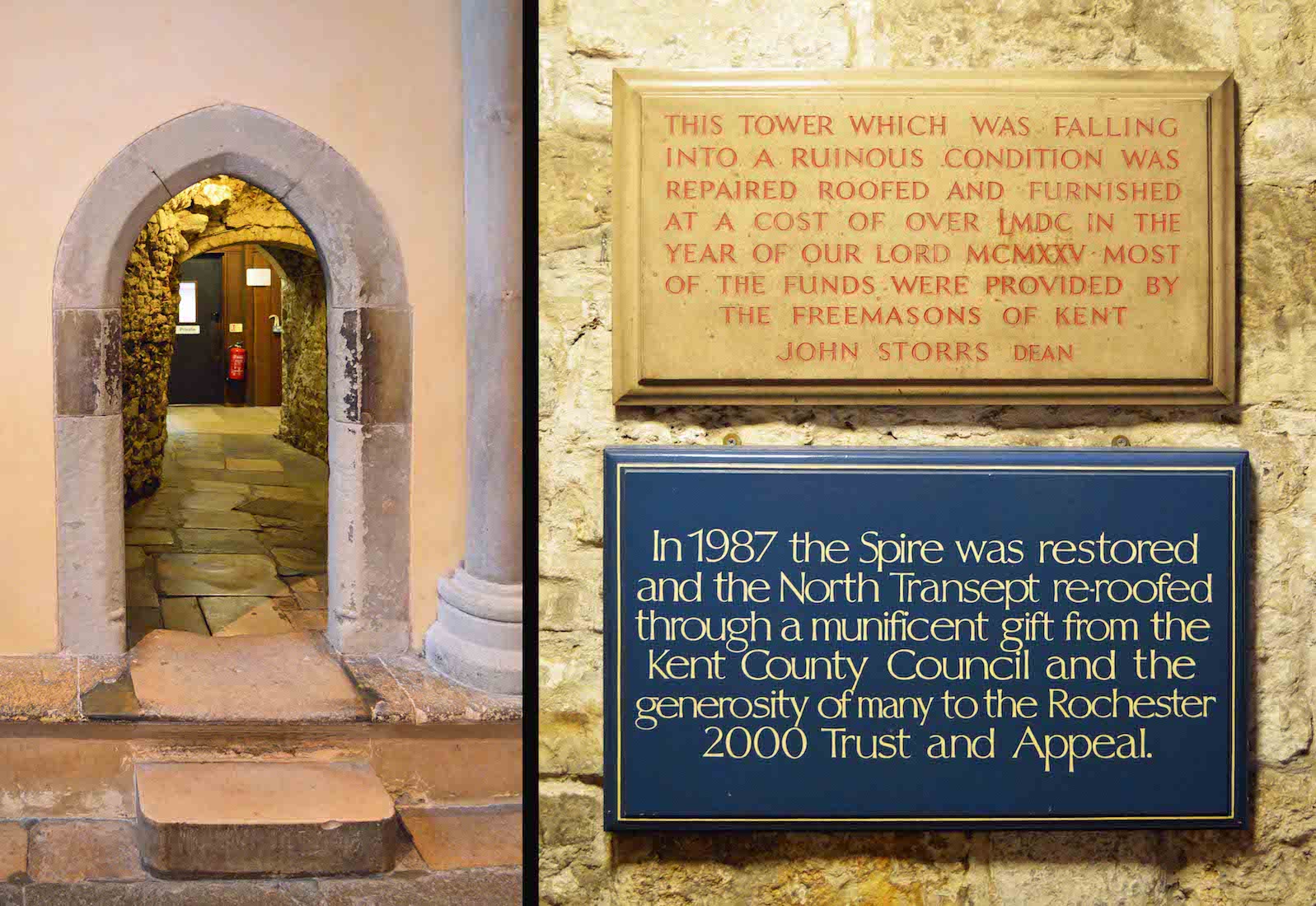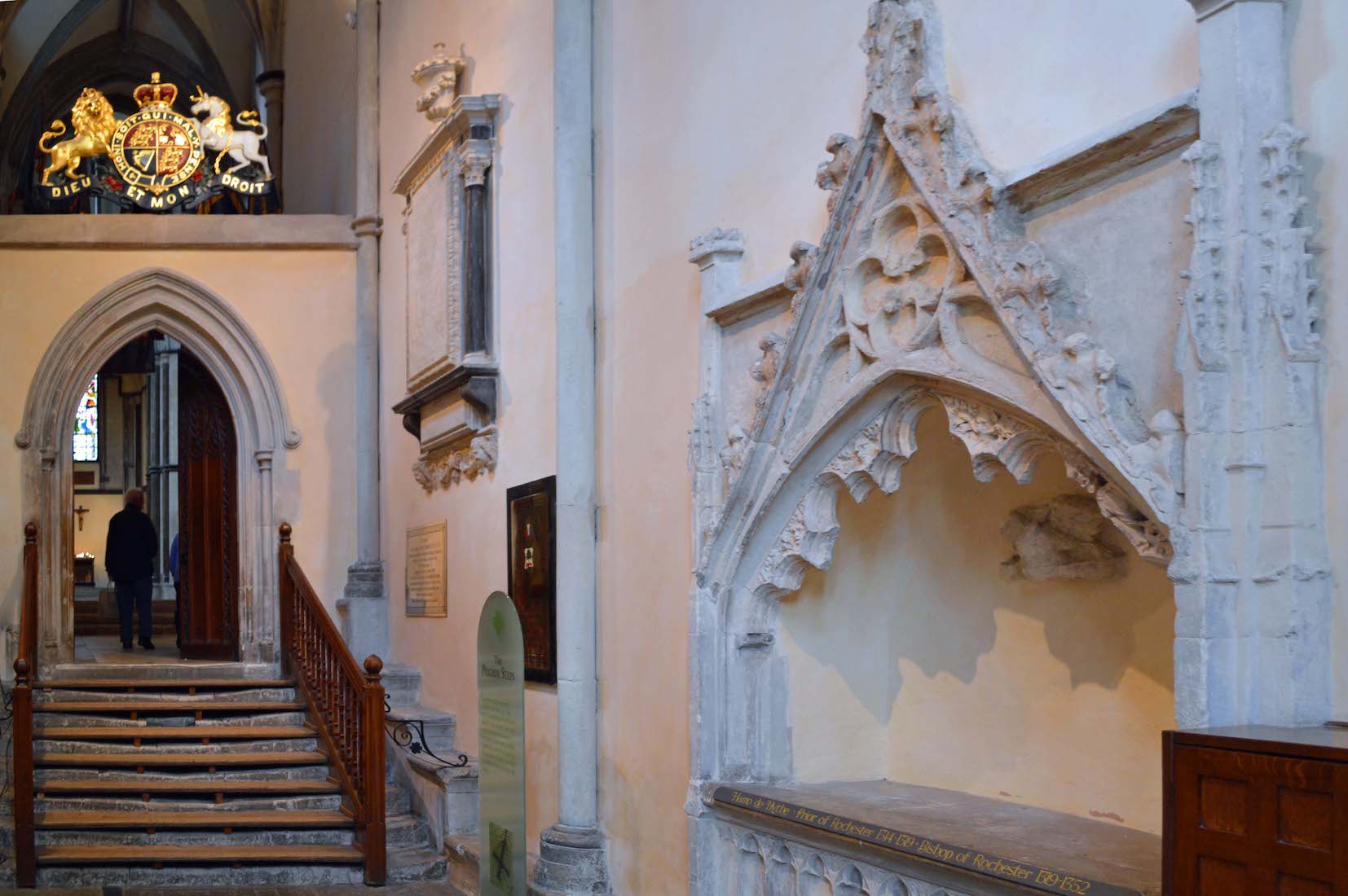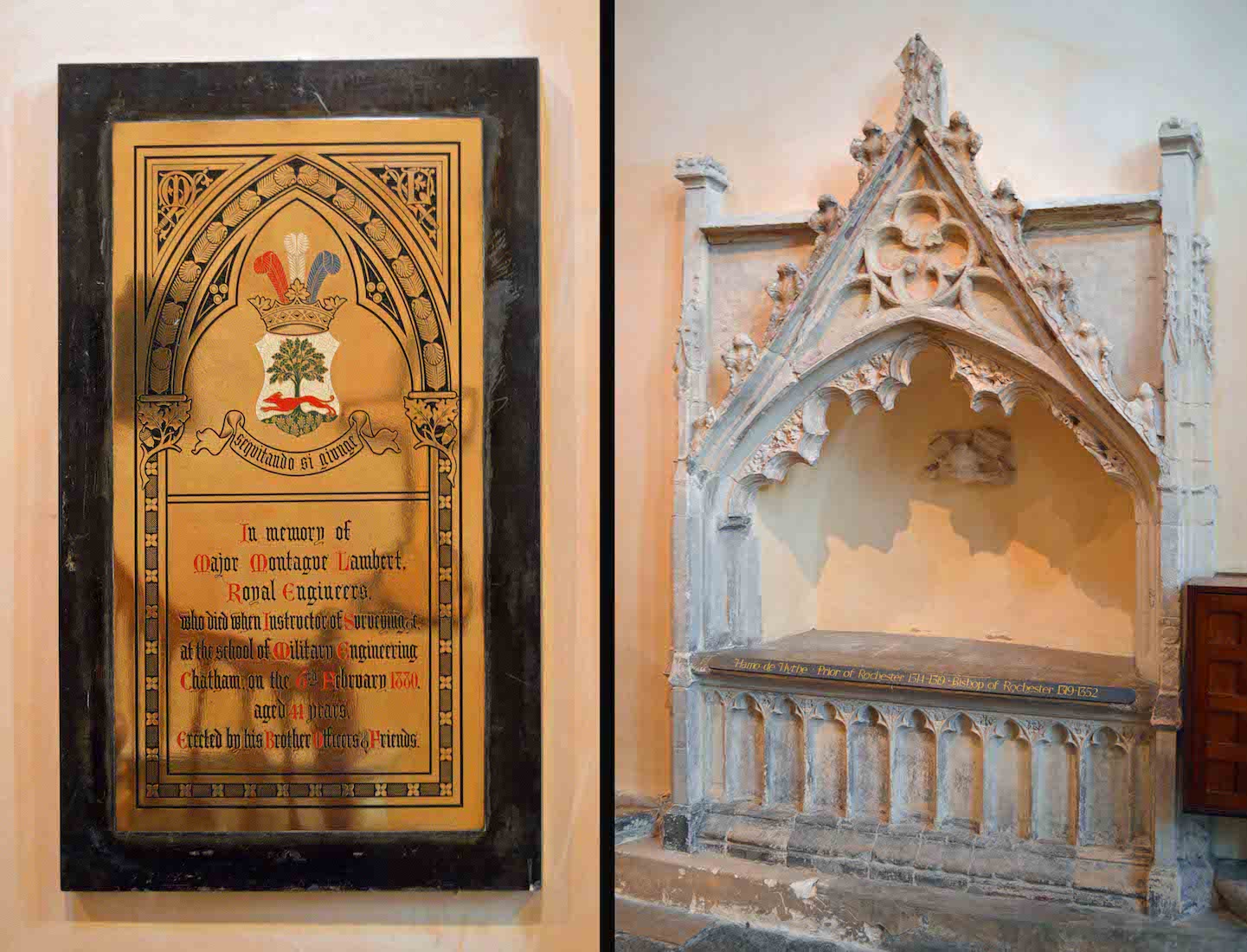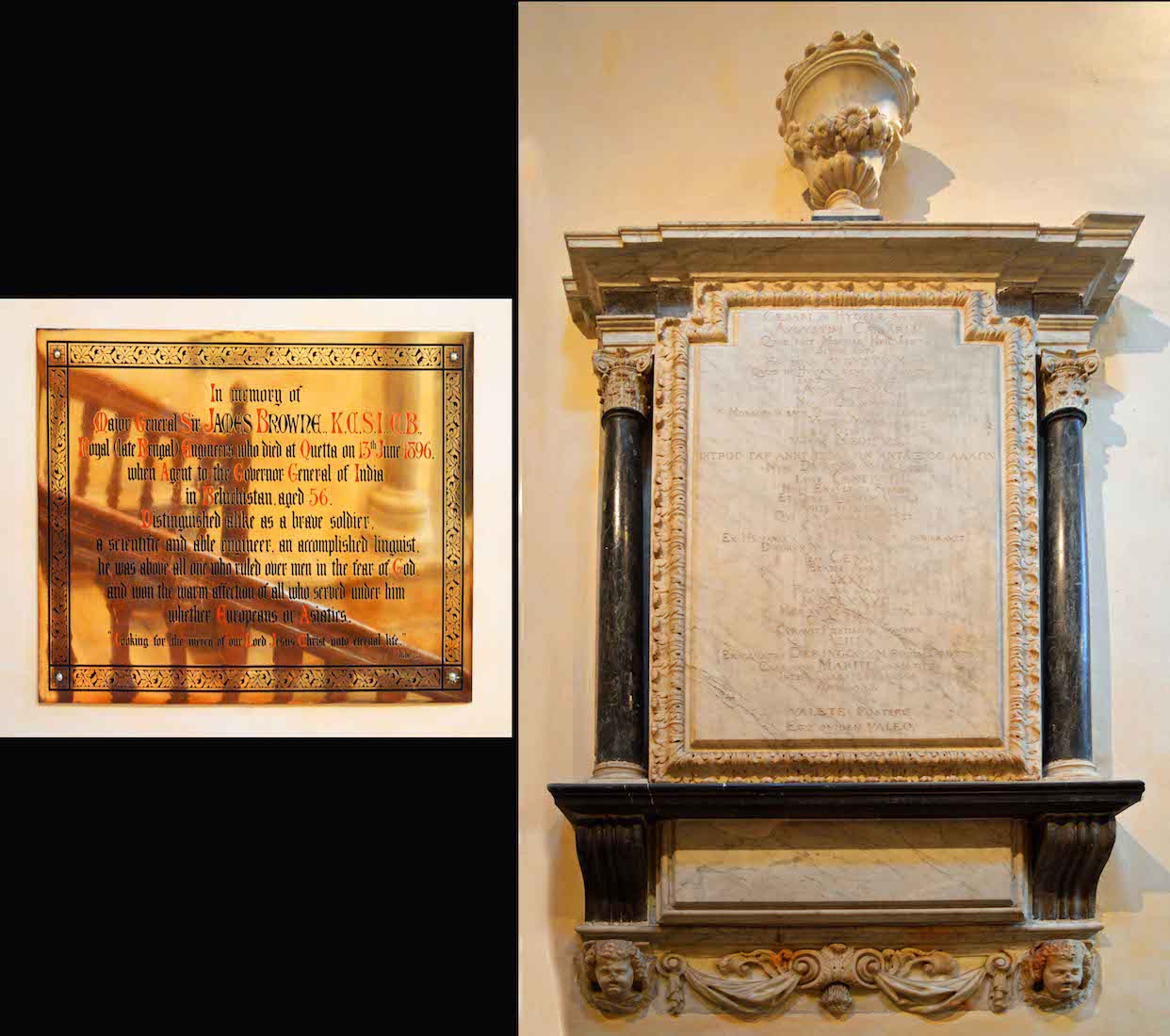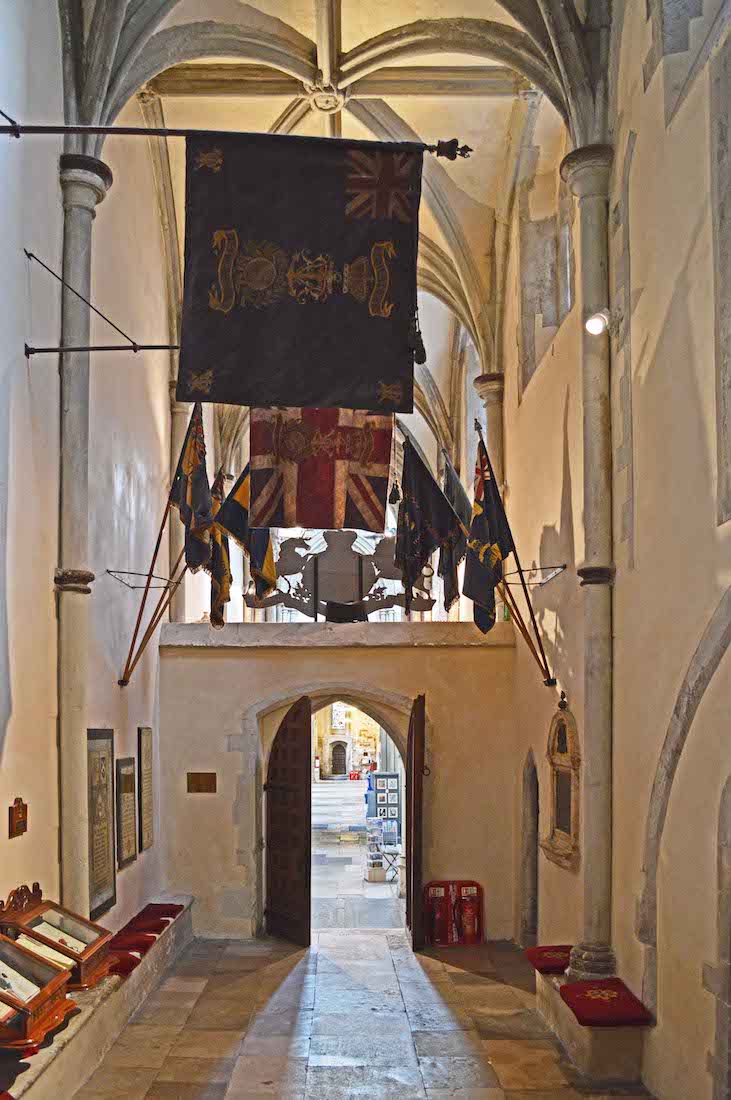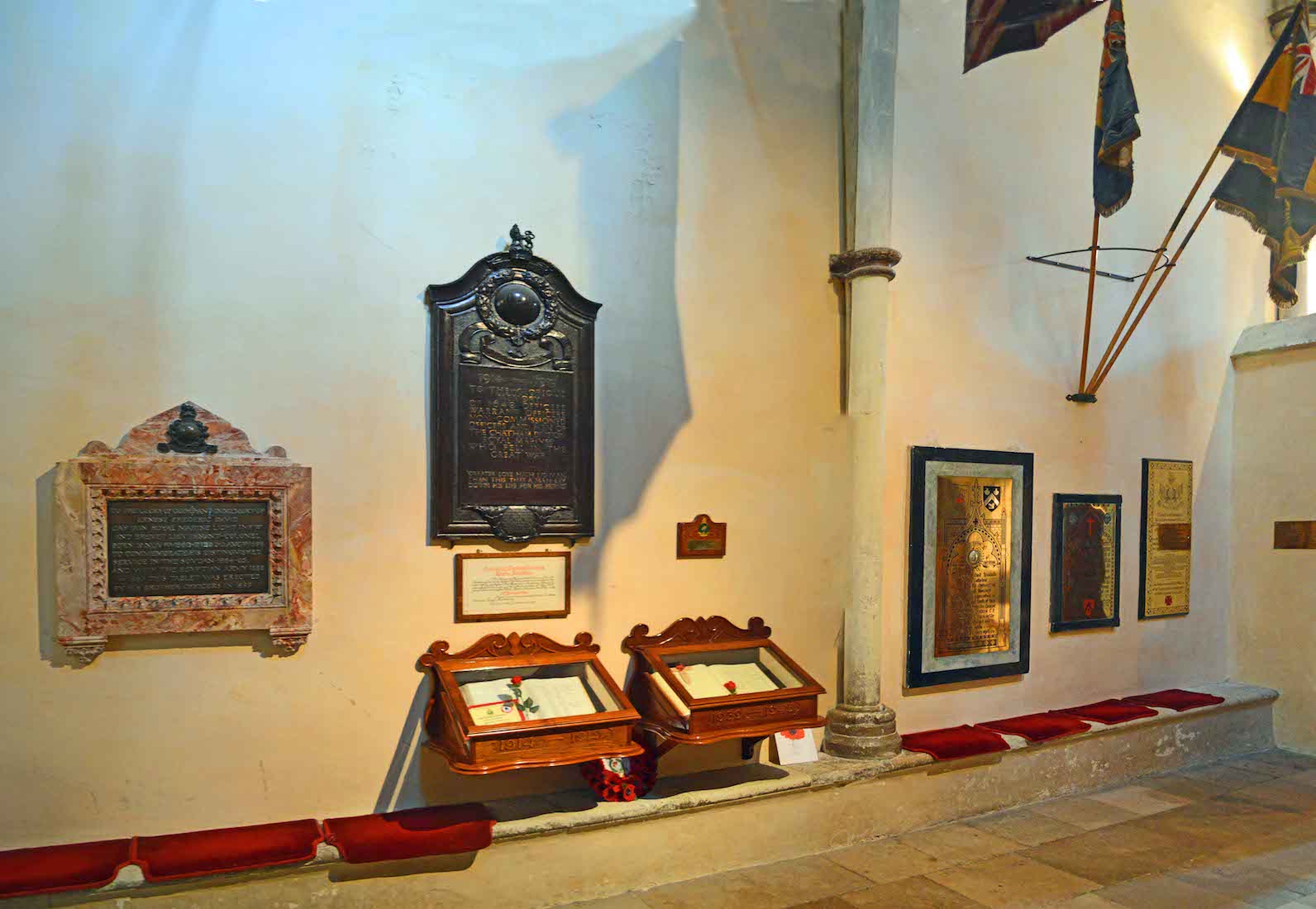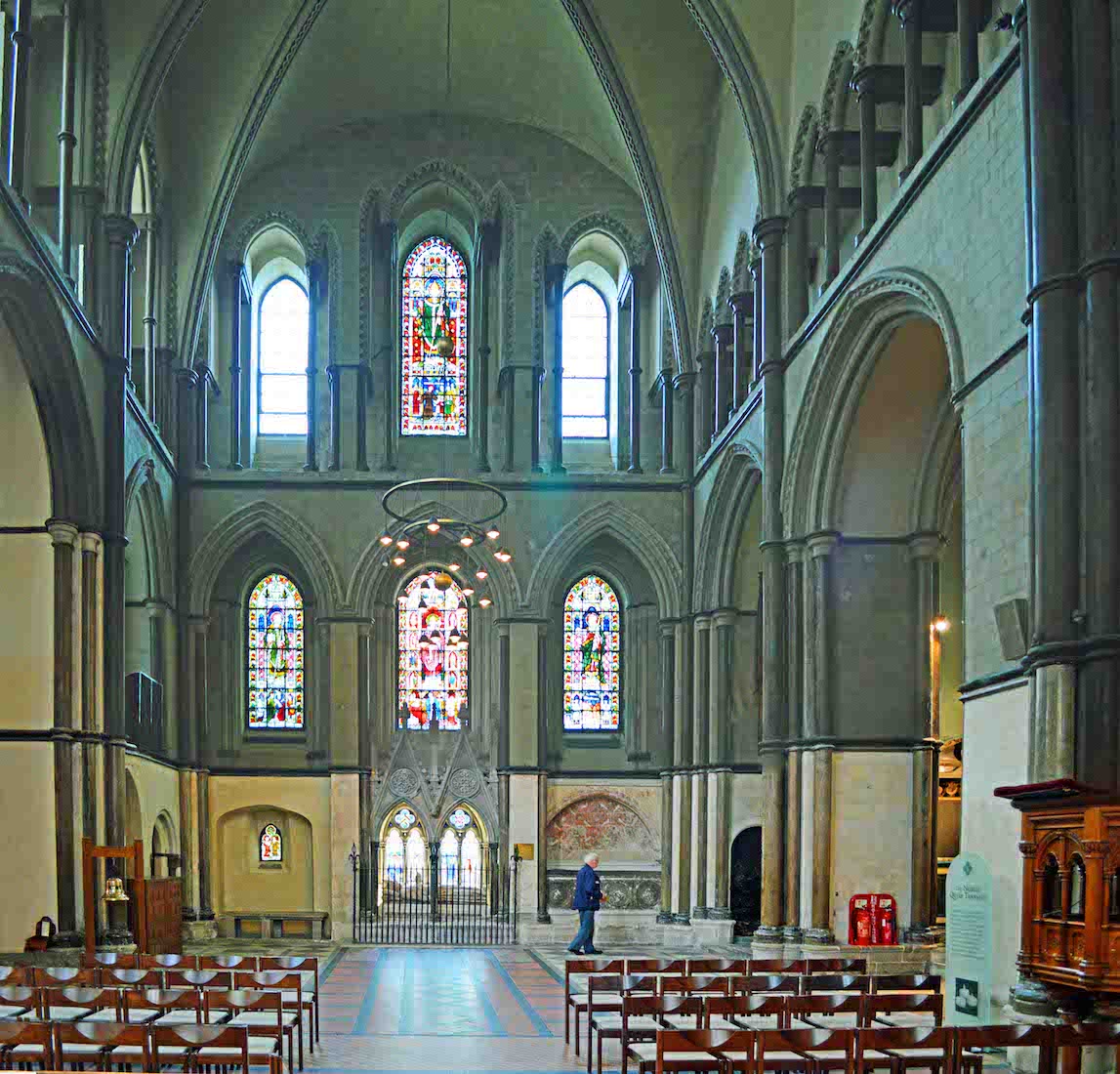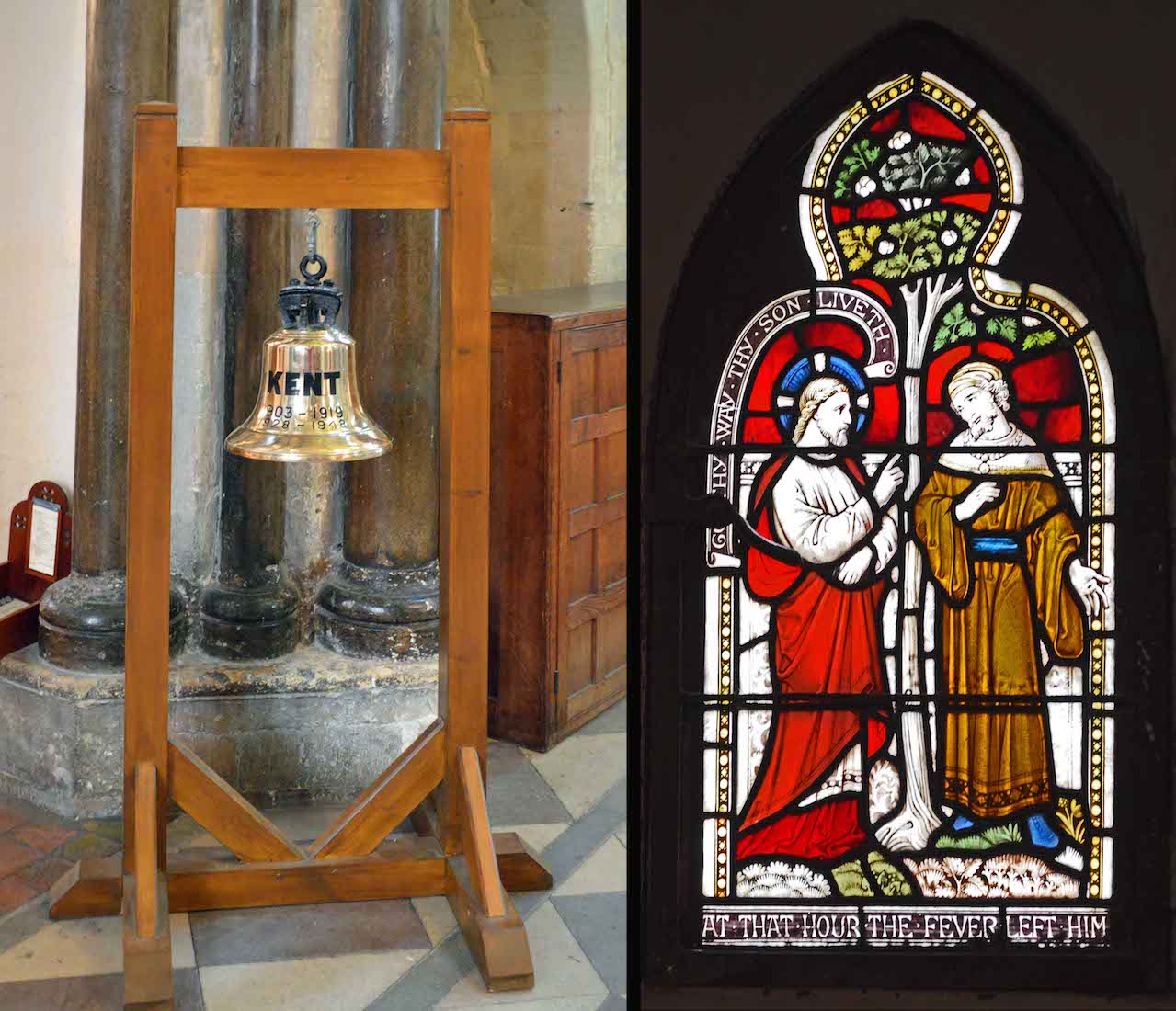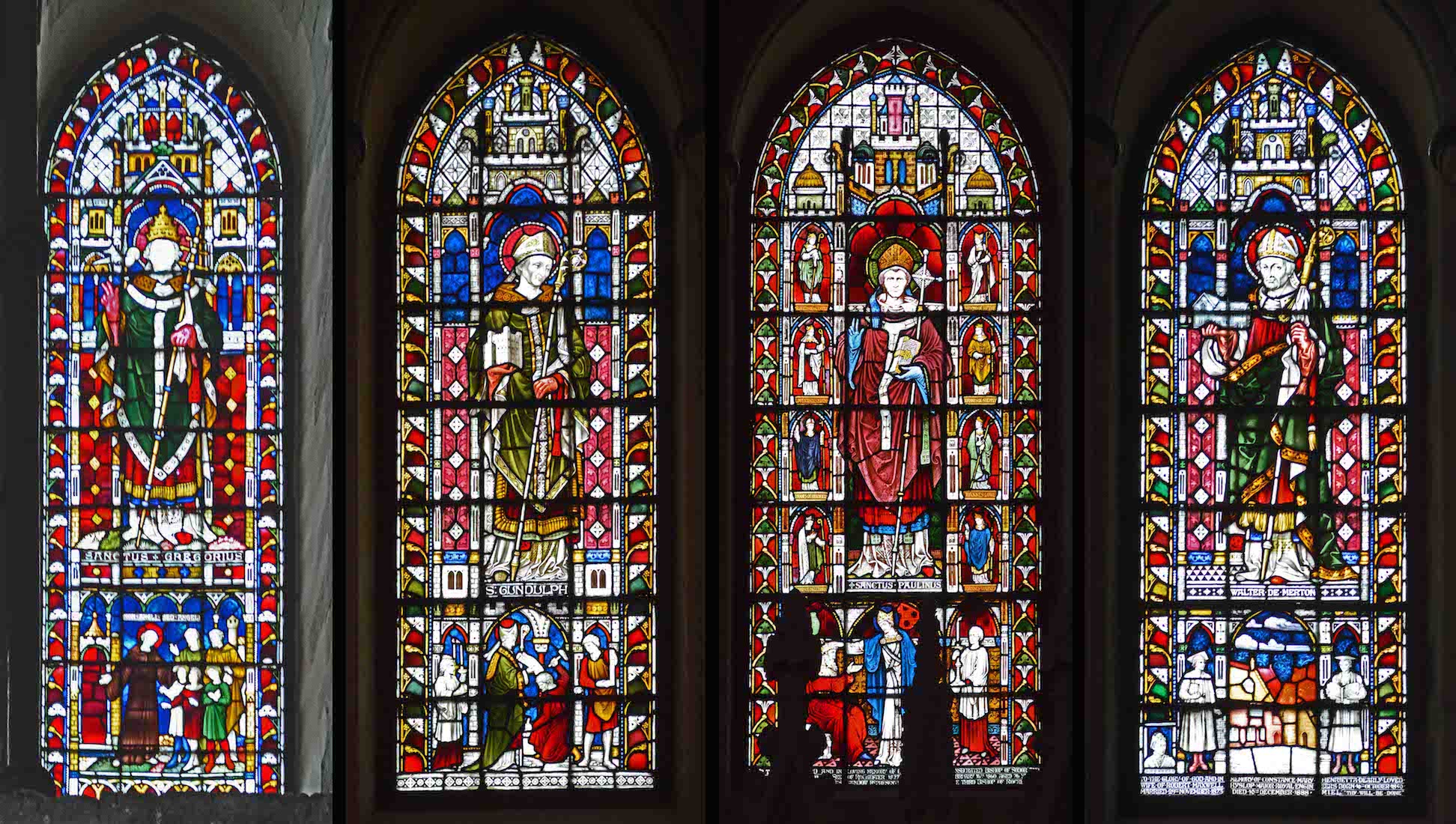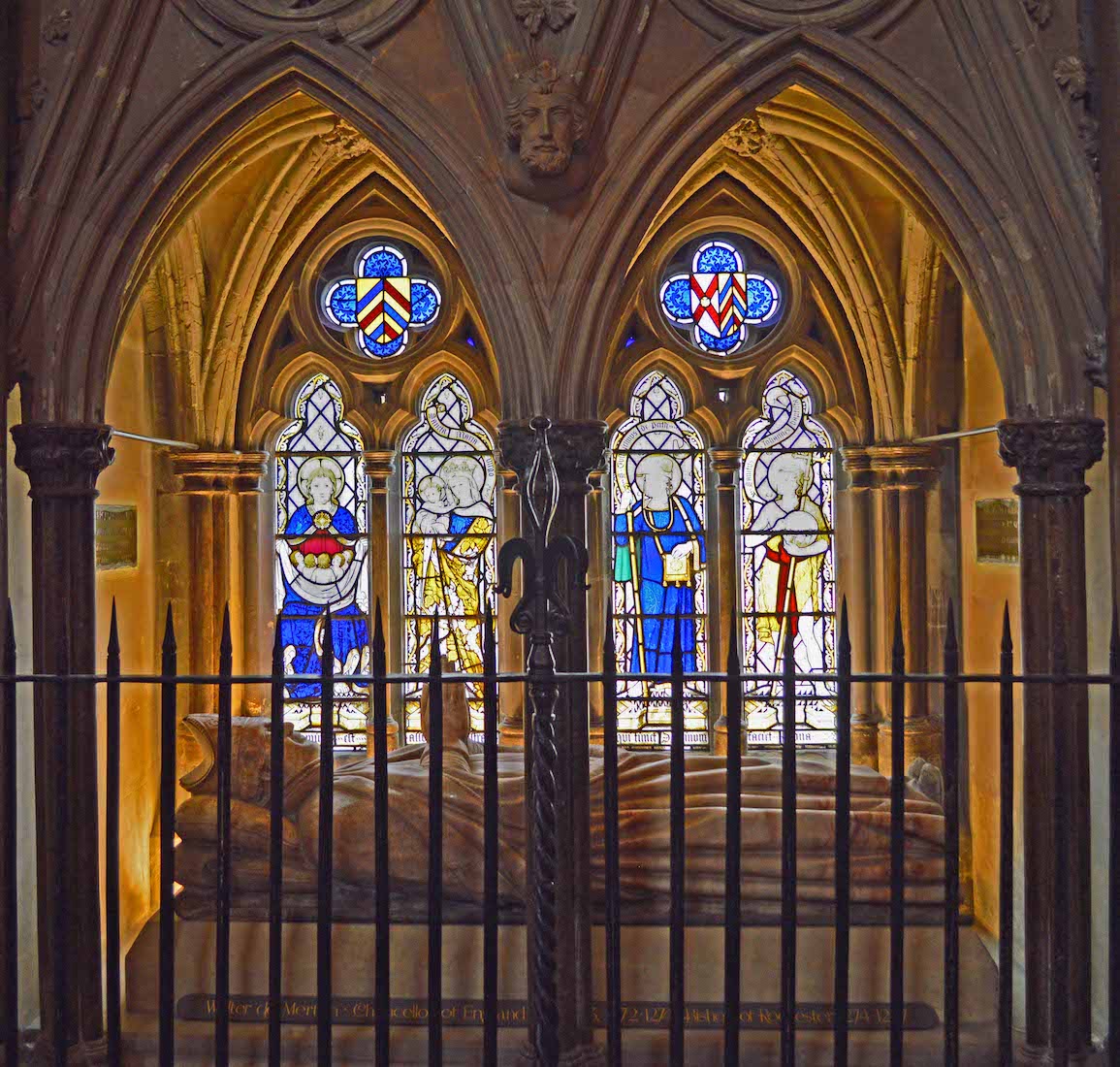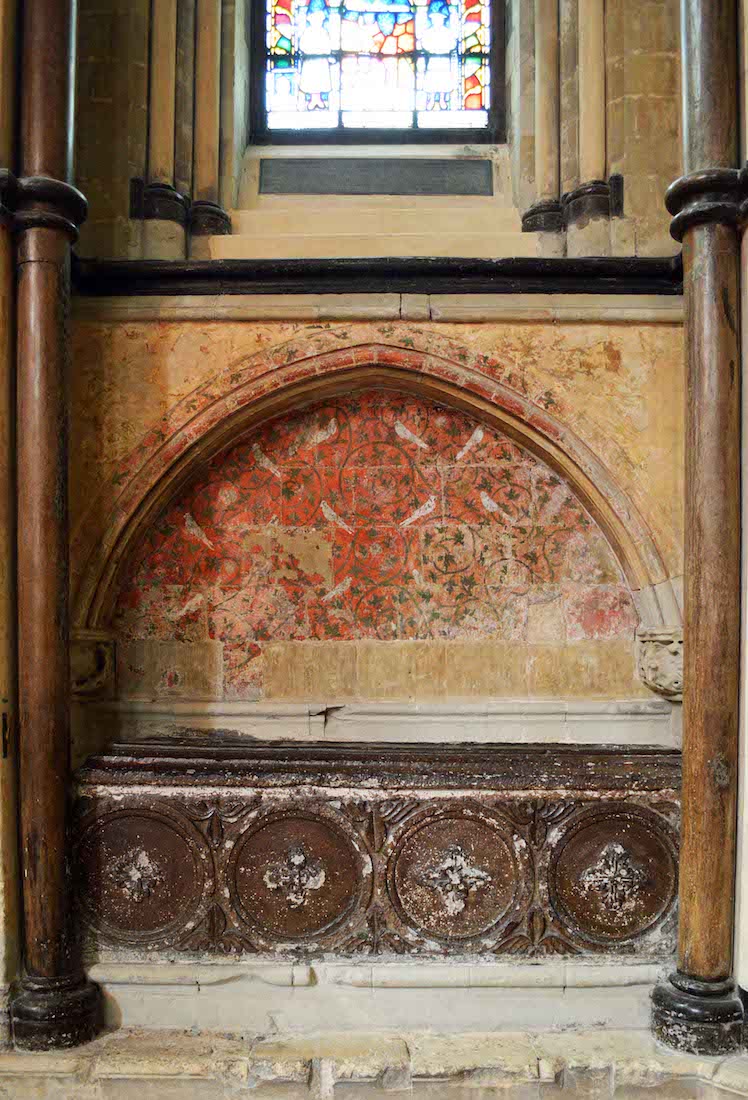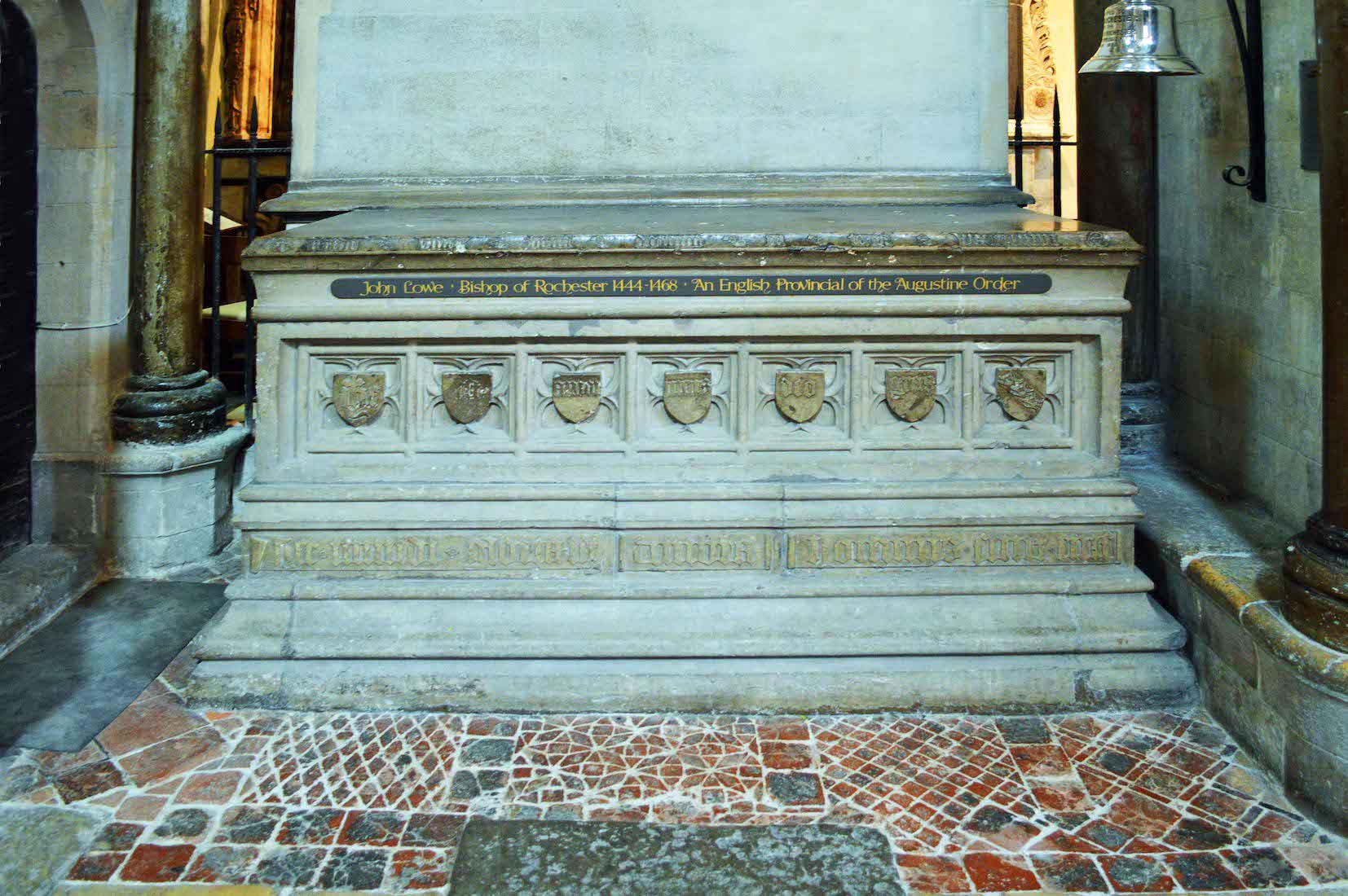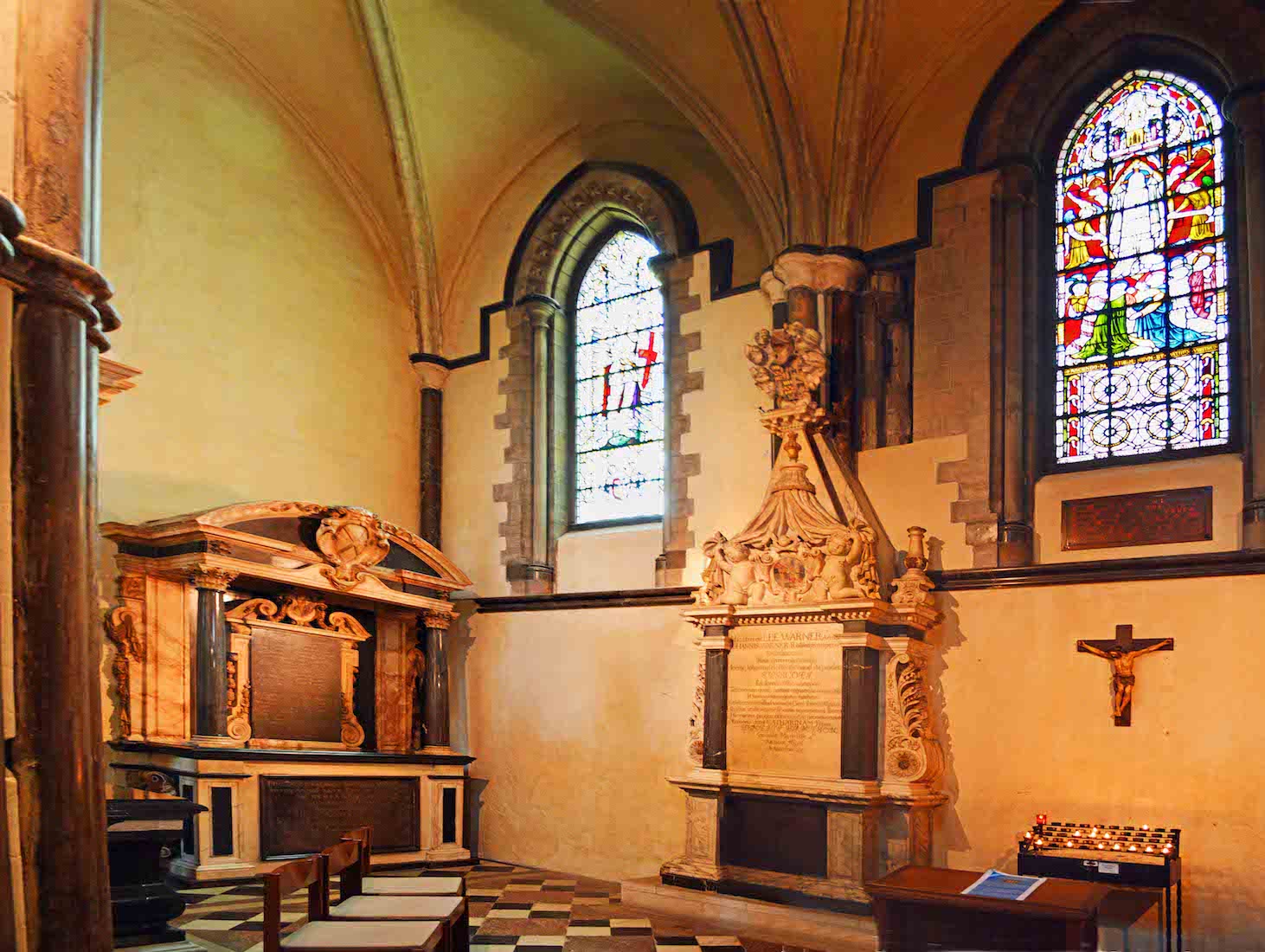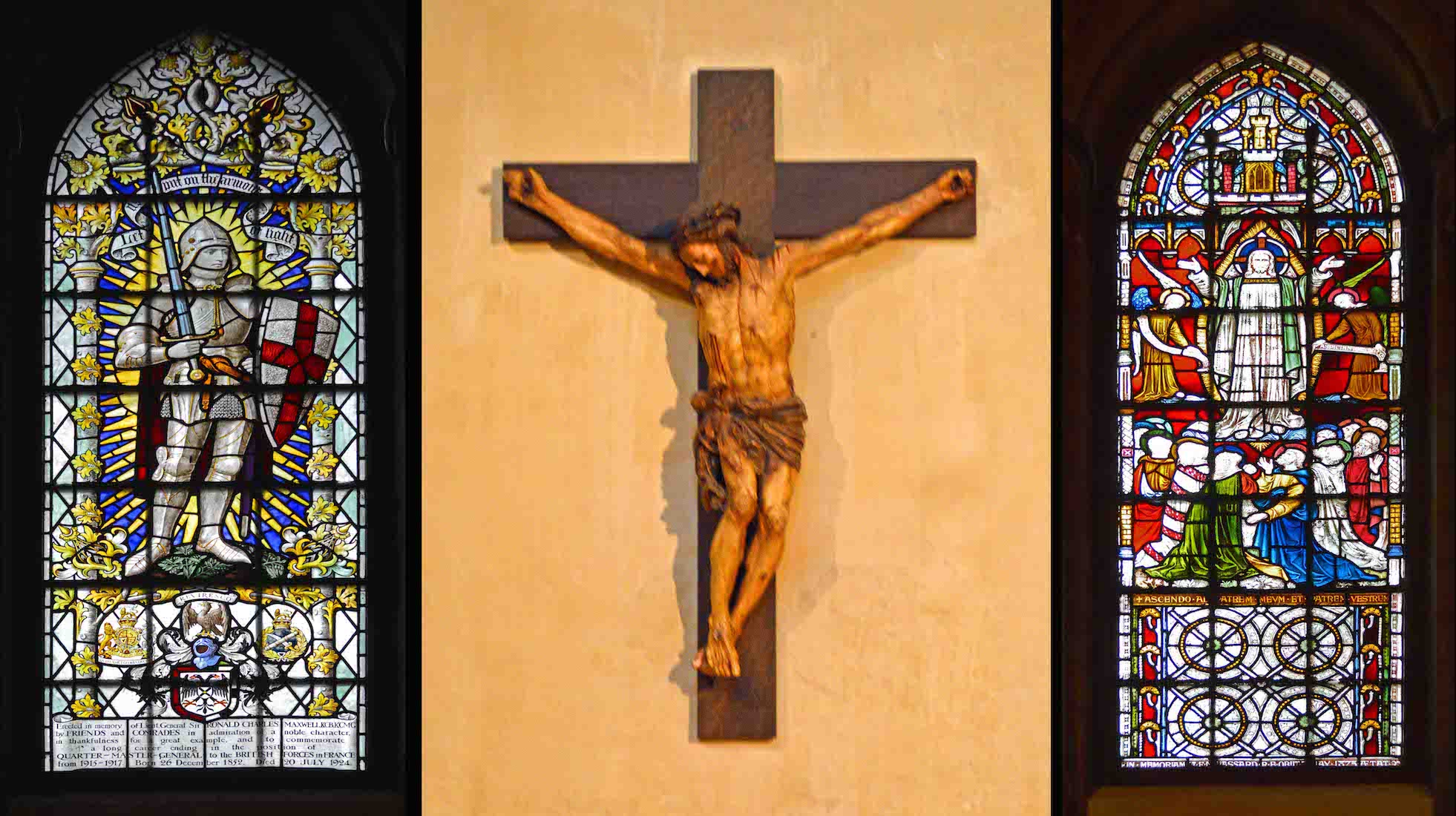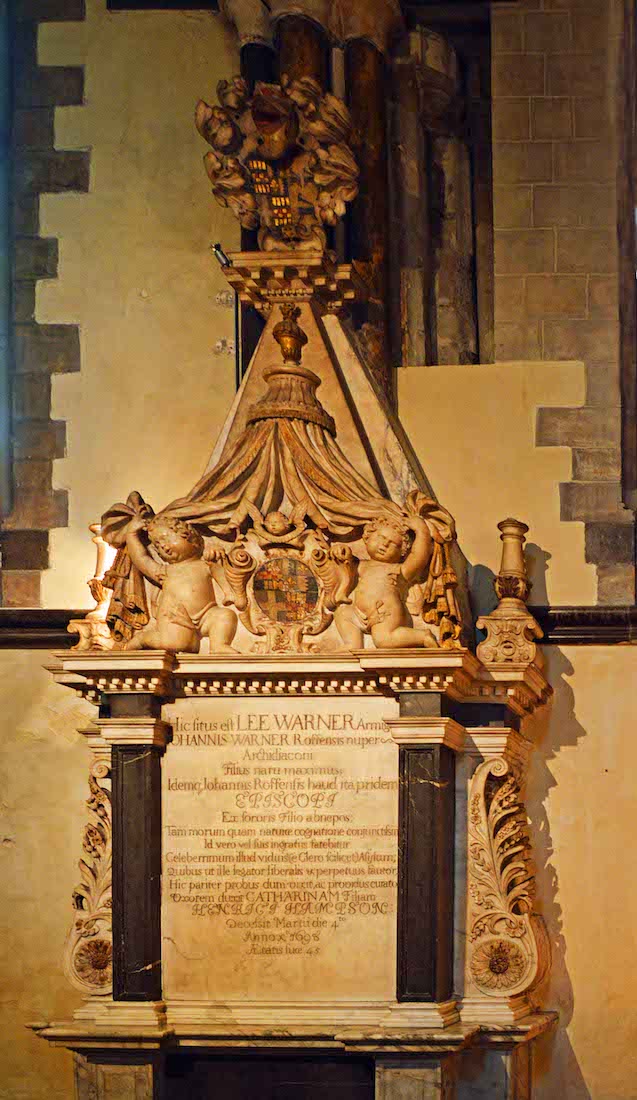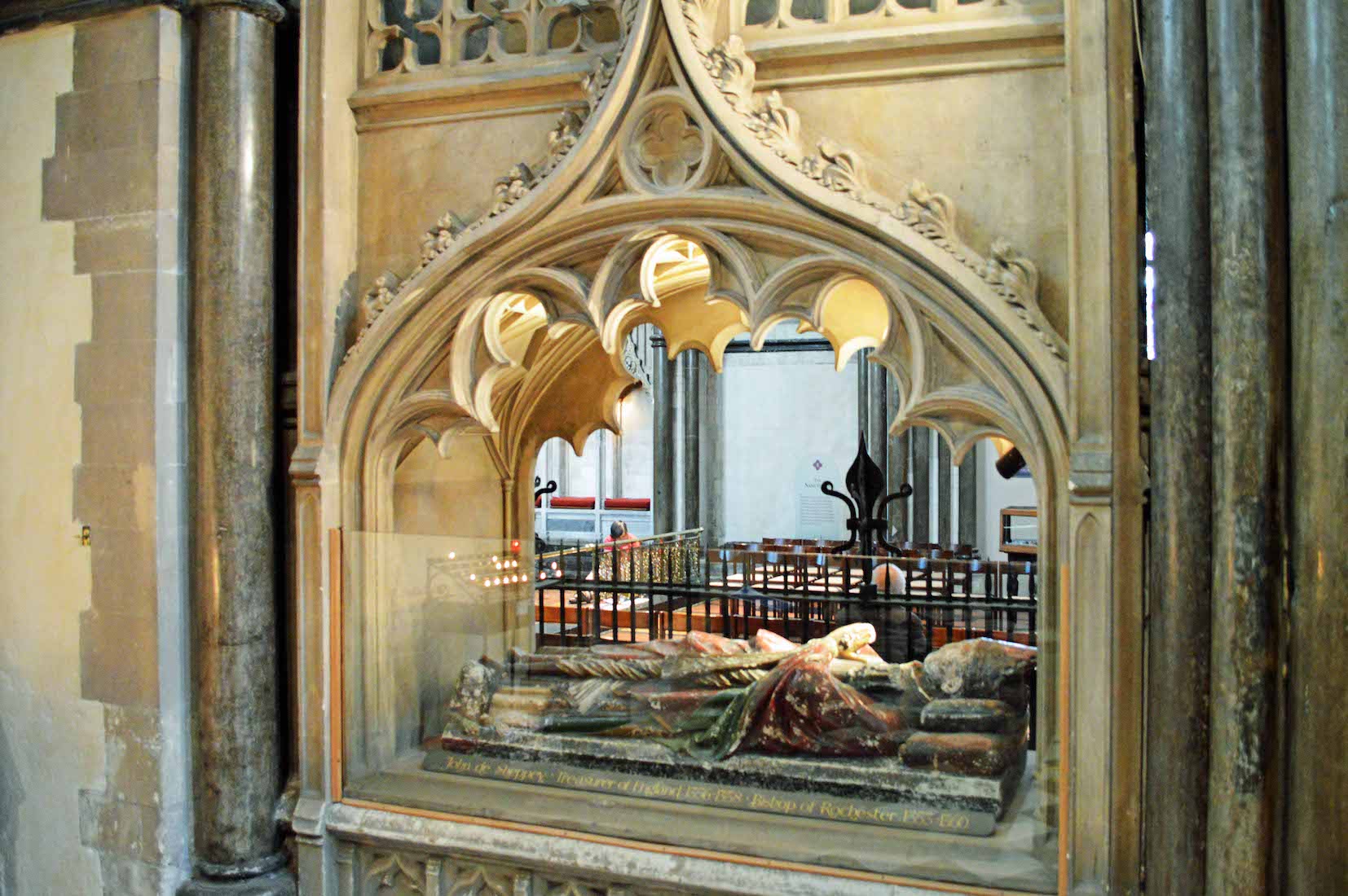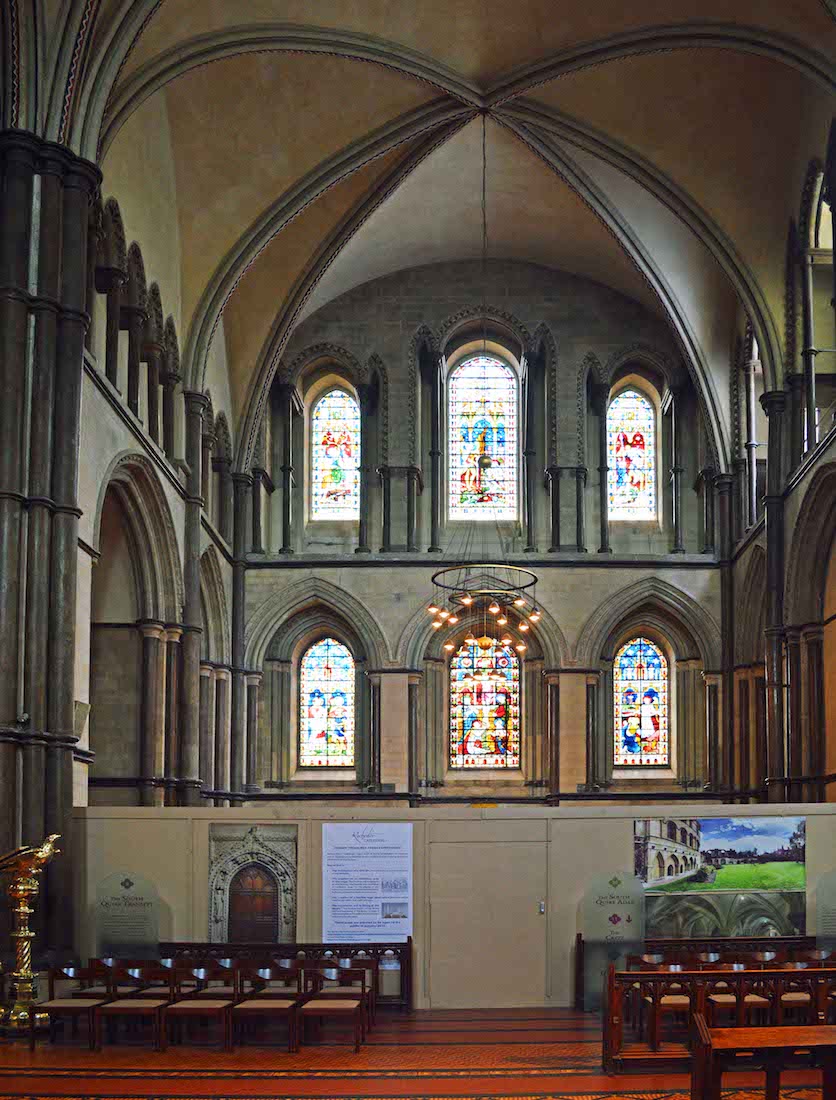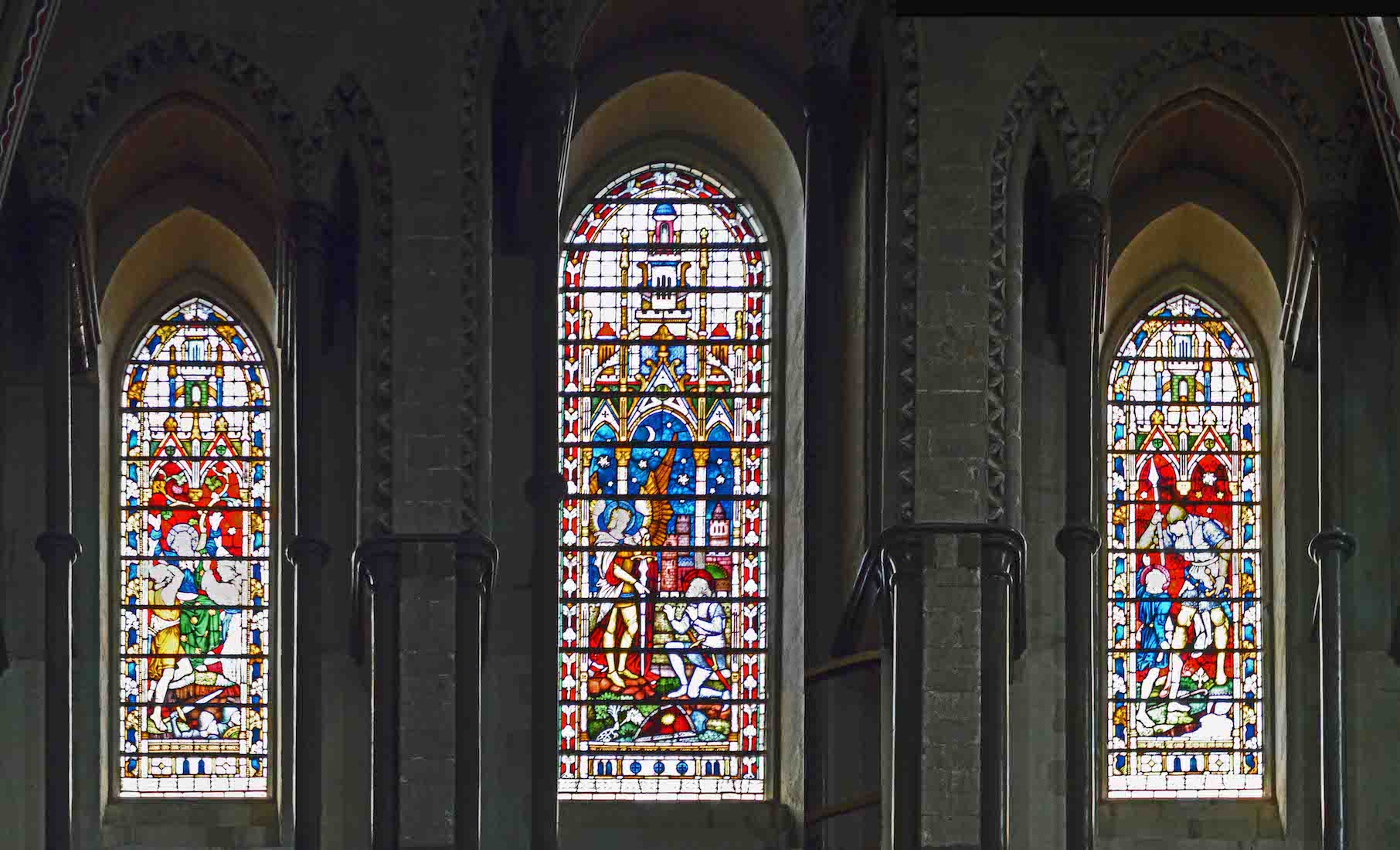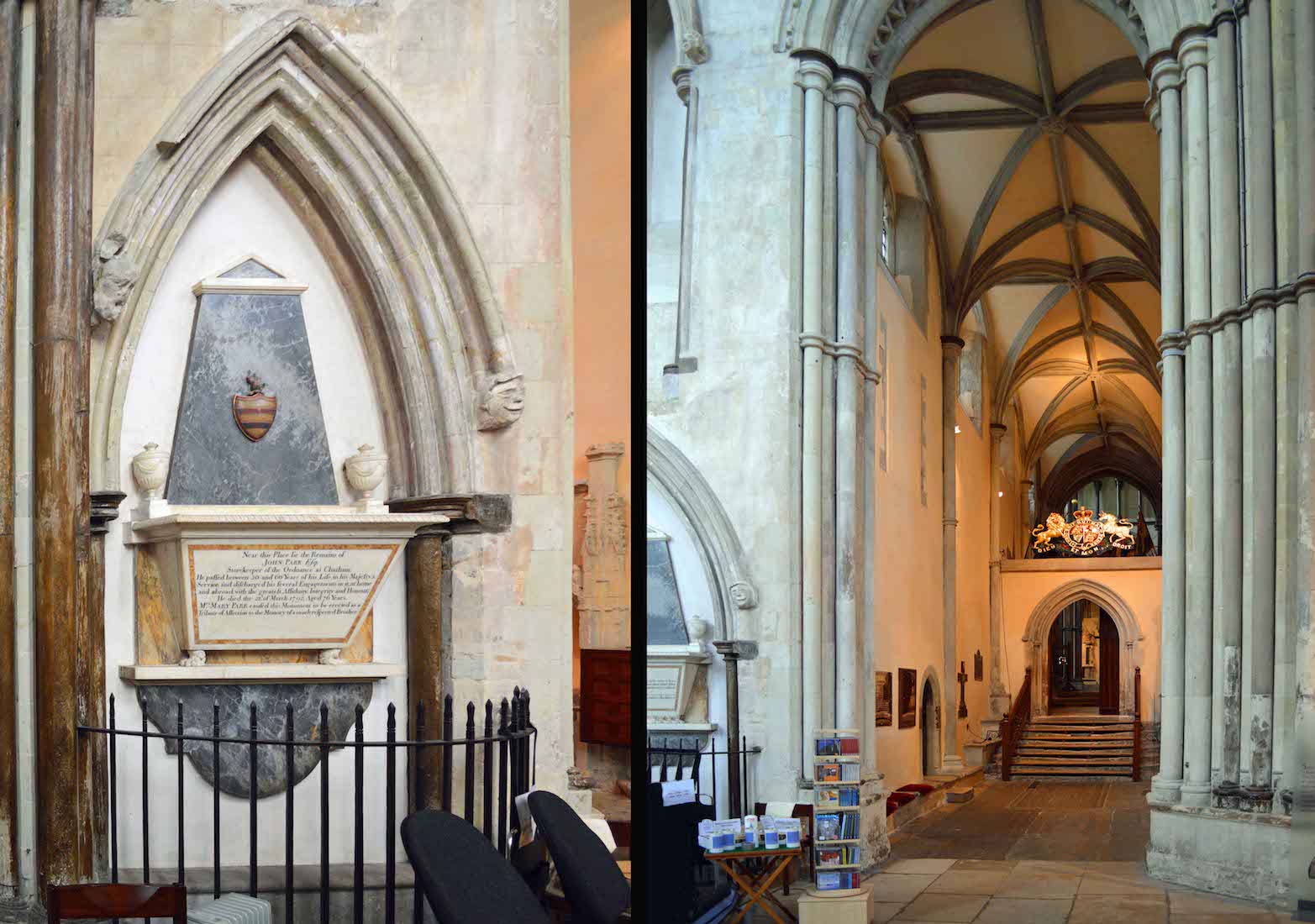
Next to the fresco in the North transept is this prominent memorial to John Park who was the storekeeper of the Ordnance at Chatham for many years. Note the carved stone heads of which there are many in this transept. At right we come to the North Quire Aisle. PLAN
82. AISLE PLAQUES
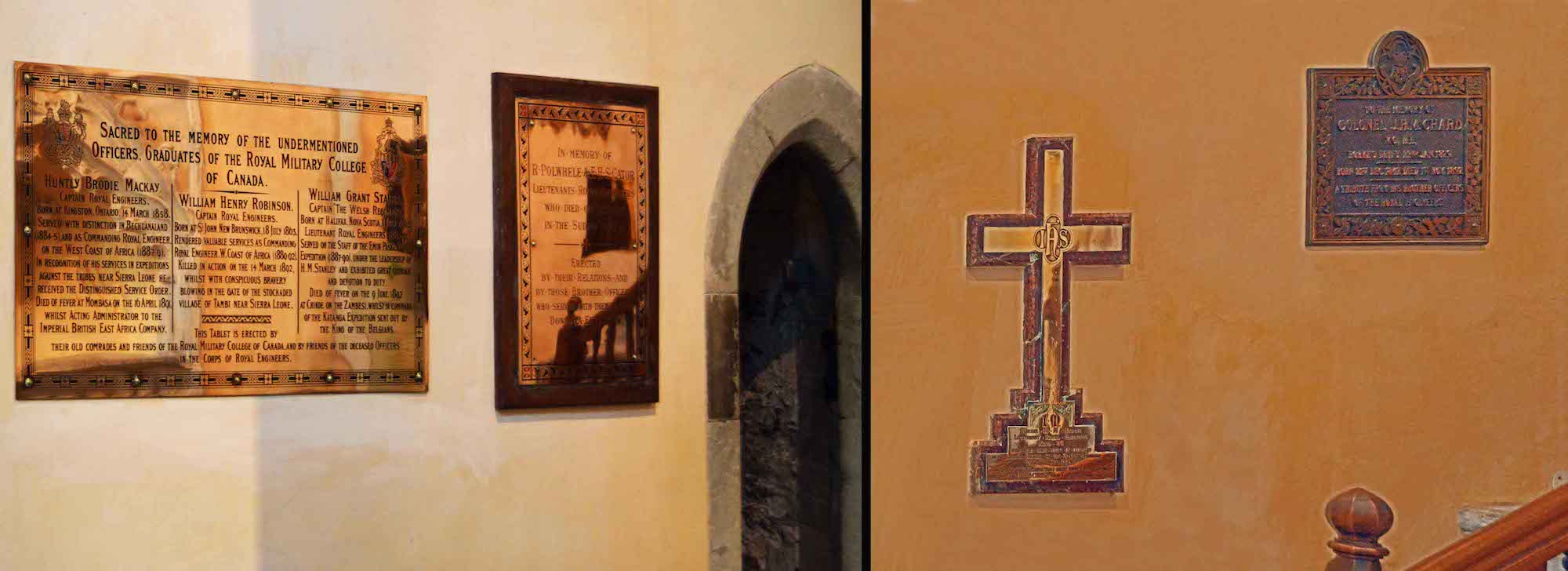
There are four memorials on the North side of the aisle, and a mysterious small door. The plaques are in memory of certain graduates of the Royal Military College of Canada, Lieutenant R. Pohlwhele, Lieutenant Archie Harris, and Colonel Chard.
83. MYSTERY DOOR
At first sight it seems that the outer Cathedral wall is insufficient to hold the contents of this passage, but of course this leads through to the later addition. The old wall is evident, and within are these two plaques about rebuilding the tower and spire.
84. PILGRIM STEPS
The stone treads of the pilgrim steps, now protected by boards, were worn down by countless pilgrims over the centuries. They came to visit the shrine of a man called William. Little is known about him, and his shrine was destroyed at the Reformation. Note the 19th century Victorian coat of arms at left..
85. AISLE SOUTH WALL I
The plaque at left is in memory of Major Montague Lambert of the Royal Engineers. The tomb is of Hamo de Hythe, Prior of Rochester 1314 – 1319, and Bishop of Rochester 1319 – 1352. There are some interesting carved faces above the tomb, and presumably there was once an effigy lying here?
86. AISLE SOUTH WALL II
The plaque at left alongside the Pilgrim Steps remembers Major General Sir James Browne who died in Quetta in 1896. I have no information about the tablet at right.
87. UPPER NORTH QUIRE AISLE
The North Quire Aisle continues East beyond the doorway, arch and coat of arms. A number of old Regimental Colours hang here. There is an old custom in many cathedrals where disbanded regiments give their Colours for display..
88. UPPER AISLE SOUTH WALL
A variety of memorials line the South wall here. Remembered from left: Captain Ernest Frederick David, Men of the Chatham Division Royal Marines, Officers of the Royal Marines, ... . Two memory books list the names of Royal Marines who died.
90. BELL AND LITTLE WINDOW
HMS Kent was in service 1926-48. The Kent Bell is rung every Saturday, 52 weeks of the year, when members gather to honour the dead of two World Wars at the Page Turning Ceremony. ‘Six bells’ are rung and the pages of the two books of remembrance (WWI and WWII) honouring Royal Marines of Chatham Station who died, are turned. The little window pictures Jesus with the official whose son was healed (Jn 4:52).
91. TRANSEPT WINDOWS
The four large stained glass windows in the North wall depict from left early Bishops of Rochester: St Gregorius, St Gundulph, St Paulinus, and Walter de Merton.
92. TRANSEPT TOMB
The tomb at the centre of the North wall is that of Walter de Merton who was one of Rochester’s most dynamic bishops. He was also Lord Chancellor of England under both Henry III and his son Edward I in the mid 1200s, and founder of Merton College, Oxford.
93. FRESCO
This old wall painting has an orange background and swirls of vine leaves on which white birds sit. The arch stands over a 13th century tomb.
94. JOHN LOWE TOMB
The text around the base of this tomb reads: John Lowe • Bishop of Rochester 1444 – 1468 • An English Provincial of the Augustine Order. At front is a section of 13th century mosaic tiles. The tomb stands close to Gundulf’s door at left.
95. NORTH QUIRE CHAPEL
Directly East of the North Quire transept is a small chapel with stained glass windows and several major monuments.
96. WINDOWS AND CRUCIFIX
The left window shows a soldier and has the text: Let us put on the armour of light. The right window shows the Ascended Christ. The Latin text translates to: I am ascending to my Father and to your Father. The crucifix was found after the Battle of Salamanca in Spain in 1812.
97. LEE WARNER MONUMENT
This elaborate wall monument is in memory of Lee Warner who died in 1698. There is a tomb to another archdeacon John Lee Warner who died in 1679 nearby, obviously an hereditary position! Another member of the Warner family became a bishop.
98. DE SHEPPEY TOMB
To our right is the tomb of Bishop John de Sheppey which dates from 1360. Traces of the original colouring remain. Sheppey was a native of Kent, became a Benedictine monk and completed his education at Oxford where he graduated as doctor of divinity. He was buried at Rochester Cathedral, where he had endowed a chantry. His effigy was discovered at Rochester in 1825.
100. SOUTH QUIRE TRANSEPT TOP WINDOWS
There are six stained glass windows in the South wall. The top three depict scenes from the Old Testament. The windows show: Left: Aaron and Hur holding up the hands of Moses (Ex 17:12). Centre: Joshua and the Captain of the Lord’s Host (Josh 13 - 15). Right: David and Goliath with the text: 'This day will the Lord deliver thee into mine hand.’


